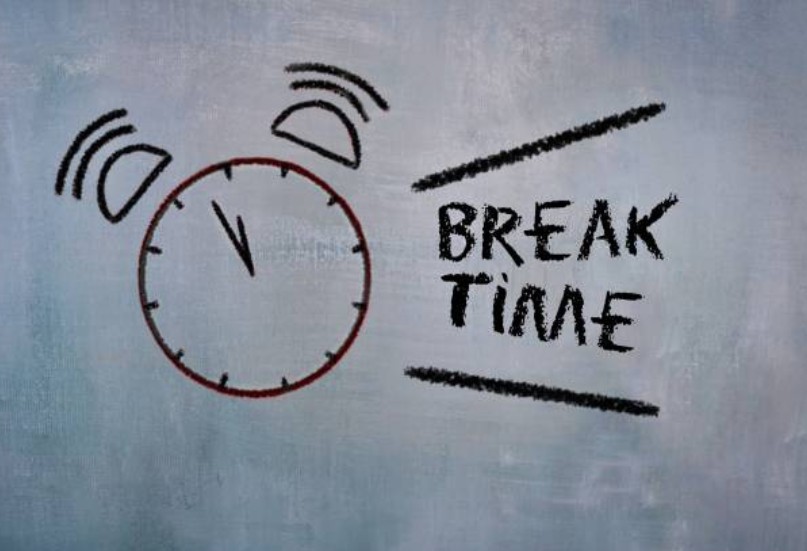When I first started working part-time shifts, one of the most common questions that crossed my mind was: “Am I entitled to a break during a short shift?” If you’re working a 4-hour shift, you might assume you’re due a tea break, a lunch break, or even a short pause. But under UK law, the answer might surprise you.
Understanding what is the break entitlement for a 4-hour shift in the UK is crucial—not just for your comfort, but for protecting your rights at work. So let me walk you through everything you need to know, based on official legislation and real-life experience.
Am I Legally Entitled to a Break During a 4-Hour Shift in the UK?
The simple answer is: no, you’re not legally entitled to a rest break during a 4-hour shift if you’re over the age of 18. According to the Working Time Regulations 1998, which is the key legislation governing working hours and rest in the UK, adult workers are only entitled to a break if they work more than 6 hours a day.
This means if your scheduled shift is exactly 4 hours, your employer isn’t legally obligated to provide you with a break. That said, many employers choose to give breaks even if not required by law—it’s simply good practice and promotes staff wellbeing.
What Does UK Law Say About Rest Breaks During Work?

Let’s look a little deeper into what the UK labor laws actually state. Under the Working Time Regulations:
- Adult workers (18+) must receive a minimum of one 20-minute uninterrupted rest break if their working day is more than six hours.
- This break does not have to be paid—it depends on your contract or employer policy.
- Breaks must be taken during the shift, not at the beginning or end.
Since a 4-hour shift falls well below this threshold, no statutory break is required.
However, while the legal break entitlement for a 4 hour shift UK is technically none, it’s still worth checking your employment contract or staff handbook. Some employers may include paid or unpaid breaks as part of their internal policies, especially in hospitality or retail roles.
Are There Exceptions to the Rule for Short Shifts?
While the law is clear, real-world workplaces often work a little differently. In my own experience, certain companies do provide discretionary breaks, even for shifts under 6 hours. This is especially true in physically demanding roles or fast-paced environments where staff morale is critical.
For example, when I worked in retail, we were often allowed a short five-minute breather if things were quiet, despite only being on a 4-hour rota. These kinds of gestures weren’t legally required but were encouraged by good management.
So although your employer doesn’t have to offer a break during a 4-hour shift, they’re allowed to do so—and many do.
What About Young Workers?
If you’re under the age of 18, your break entitlements are different, and in some ways, more protective. The law recognizes that young workers need more rest, and the regulations reflect that.
If you’re aged 16 or 17, and you work more than 4.5 hours, you are legally entitled to a 30-minute uninterrupted break. This is slightly different from the 6-hour threshold for adults.
Here’s a quick comparison to help clarify:
| Age Group | Shift Duration | Minimum Legal Break |
|---|---|---|
| 18+ (Adult Workers) | 4 hours | No legal entitlement |
| 18+ (Adult Workers) | 6+ hours | 20-minute break (unpaid) |
| Under 18 | More than 4.5 hours | 30-minute break (unpaid) |
As someone who once worked part-time while studying, I found these rules essential to ensure young people aren’t overworked or taken advantage of.
Are Breaks During a 4-Hour Shift Paid or Unpaid?

Here’s where things can get a little confusing. Even if a break is offered during a short shift, it doesn’t have to be paid unless your contract specifically says so. I’ve worked in roles where breaks were paid, and others where they weren’t—it completely depended on the employer.
In general:
- Legally required breaks (for 6+ hour shifts) are unpaid unless stated otherwise.
- Voluntary or discretionary breaks, such as quick coffee breaks during a 4-hour shift, may or may not be paid, based on your company’s policy.
So it’s best to clarify with your manager or HR team whether short breaks—if offered—are counted as paid working time.
What If I Don’t Get a Break and I Feel It’s Unfair?
Even though you’re not entitled by law to a break during a 4-hour shift, it’s still worth raising concerns if the working conditions feel unreasonable. In high-pressure or physically taxing roles, working for four continuous hours without a pause can affect both performance and well-being.
Here’s what I’ve done in similar situations:
- Spoken to my manager informally—often they were unaware and happy to allow a short break.
- Checked the staff handbook or contract to understand what was agreed.
- Approached HR or a supervisor if it felt like a pattern or policy issue.
If you still feel you’re being treated unfairly, you can seek advice from organizations like Citizens Advice or ACAS, which provide free and confidential support.
Table: UK Break Entitlements by Shift Length
Here’s a quick-reference table I created to summarise what I’ve covered:
| Shift Length | Minimum Legal Break | Is It Paid? |
|---|---|---|
| 4 hours | None | Only if the employer allows it |
| 4.5 hours (Under 18) | 30 minutes | Usually unpaid |
| 6+ hours (Adults) | 20 minutes | Usually unpaid (check contract) |
| 8+ hours (Typical) | 30–60 minutes (based on policy) | Varies by employer |
Always refer to your contract of employment or company policies to get the most accurate answer.
Can Employers Offer More Than the Legal Minimum?

Yes—and many do. The law sets out the minimum requirements, but your employer is free to offer more generous break times. In fact, some forward-thinking companies treat break time as a vital part of employee wellbeing.
I once worked for a company that provided a paid 10-minute break during any shift over 3 hours, purely as part of their commitment to employee satisfaction. It wasn’t legally required—but it built trust, boosted morale, and improved retention.
So if your employer doesn’t currently offer breaks during a 4-hour shift, it may be worth having a respectful conversation. Many are open to suggestions, especially if they value their team.
Final Thoughts: Knowing Your Break Rights at Work in the UK
The topic of break entitlement for a 4-hour shift UK may seem minor, but it’s an important one—especially if you work multiple short shifts or are in a physically demanding job. Knowing your rights ensures you’re not caught off guard and helps you professionally advocate for yourself.
While UK law doesn’t require employers to provide a break during a 4-hour shift for adults, that doesn’t mean breaks aren’t possible. Many companies go beyond the minimum, especially in environments where rest is crucial for safety and performance.
If in doubt, check your contract, talk to your employer, and don’t be afraid to seek clarification. After all, understanding your rights is the first step in making sure your work environment is both fair and respectful.





